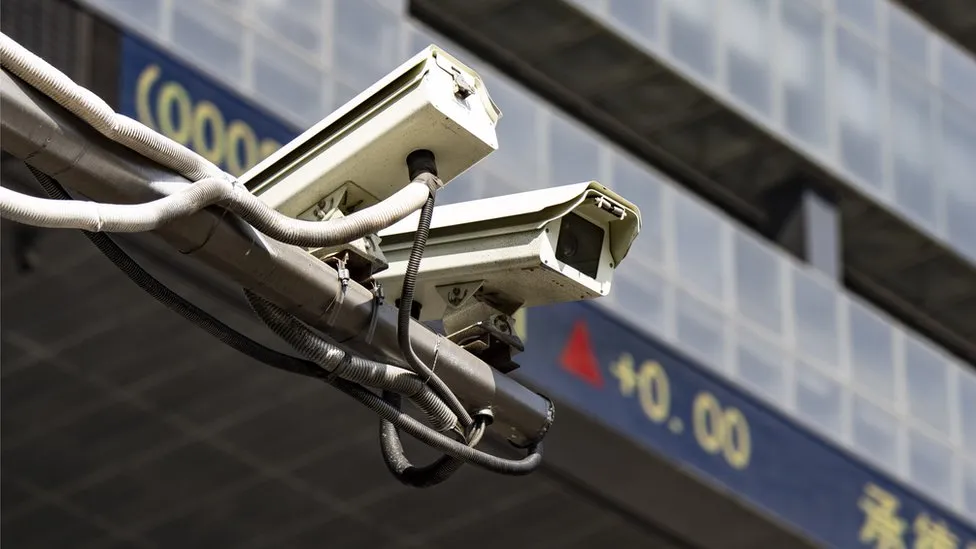Some Chinese developers must now install monitoring equipment at their projects, under official measures which took affect this month.
The rules apply to firms that have received at least 30 million yuan ($4.2m; £3.3m) of government funding. It comes as authorities move to support China's crisis-hit property industry.
In January, the country's housing ministry said it would offer more bailout loans to developers struggling with debt and a slowdown in demand.
Announcing the new surveillance rules in January, the National Development and Reform Commission (NDRC) said in a statement that it was moving to “regulate the implementation of projects and the use of funding”.
“These measures are important to strengthen investment supervision… and improve the effectiveness of government investment,” it added.
The rules are part of the Chinese government's efforts to ensure that “funds being used to prop up struggling property developers are being used for their intended purposes,” Ben Harburg from investment firm MSA Capital told the BBC.
“Chinese developers have breached the trust of the Chinese government in the past by taking funds earmarked for completion of a project to pay off a coupon or even for personal use,” he said. Under the measures, security devices – including surveillance cameras, drones or even satellite equipment – must be used to monitor projects, if conditions allow.
The people of China are some of the most surveilled citizens in the world. It has been estimated that half of the world's surveillance cameras are in China, amounting to hundreds of millions of the devices. All this is part of China's aim to build what it calls “the world's biggest camera surveillance network”.
Many of the cameras use artificial intelligence, including facial recognition technology.
However, David Goodman, a professor of Chinese politics at The University of Sydney, said that he does not see the new rules as “creepy, though there is an element of desperation,” from the authorities to oversee state-sponsored projects.
“It is likely to have some results, and some of those may even be positive towards ensuring performance and social achievement,” he added.

Mareike Ohlberg, a senior fellow at the think-tank German Marshall Fund of the United States, said she “does not expect a move which is – at least in theory – geared towards monitoring how public funds are spent to generate a lot of backlash” given “widespread surveillance across the country”.
Project developers should also use other technologies like big data to detect problems quickly, according to the NDRC.
The BBC contacted several major Chinese developers – including Evergrande, Country Garden, Sunac and Longfor – for comment. None have yet responded. The severe problems engulfing China's property market were highlighted this week as a court in Hong Kong ordered the liquidation of debt-laden developer Evergrande.
Evergrande, like many of its rivals, borrowed billions of dollars as it expanded aggressively. However, rules were introduced in 2020 to control the amount large real estate firms could borrow. That helped trigger a crisis, which the industry is still struggling to overcome.
This presents a major issue for the Chinese government as the property sector accounts for roughly a quarter of the world's second largest economy.
“The property sector is the bellwether for the Chinese economy. Provincial governments depended on the sector to drive employment and meet growth targets. It is critical that the Chinese government shore up this sector to diffuse some global fears,” Mr Harburg said.
Earlier this year, China's housing ministry announced plans to offer more bailout loans to developers “in view of the current financing difficulties of some real estate projects”. At the same time local governments have been asked to provide a list of projects that need support, the official newspaper of China's housing ministry reported.
Chinese lawmakers have also urged banks, which provided nearly 10 trillion yuan in loans to the property sector last year, to continue lending to struggling developers. In January, to help free up funds to support the economy, China's central bank made the largest cut to mandatory reserves for banks in more than two years.
A day after the move, a senior official said the financial industry had an “unshirkable responsibility” to property developers.
“For projects that are in difficulty but whose funds can be balanced, we should not blindly withdraw loans, suppress loans, or cut off loans,” Xiao Yuanqi from the National Financial Regulatory Administration told a news conference in Beijing.
“We should provide greater support through extending existing loans, adjusting repayment arrangements, and adding new loans.”
Troubles in the property sector have also prevented developers from completing projects, leaving millions of vacant units scattered across the country. The crisis has already left many home buyers waiting for their new properties, in a country in which real estate accounts for around 70% of personal wealth.
“That could affect economic growth and potentially the stability of the financial system,” said Ms Ohlberg. Beijing has previously sought to temper public concerns as people have taken to Chinese social media sites such as Weibo to share their frustrations about developers.
“Housing affects social stability. If a lot of people buy properties that aren't built, that's a lot of people who will be very upset,” she added.
— CutC by bbc.com


